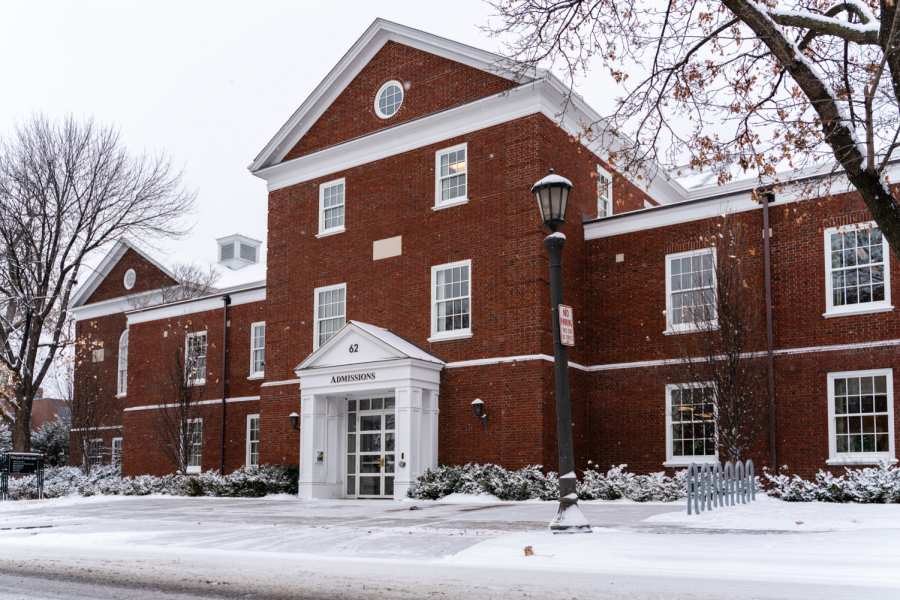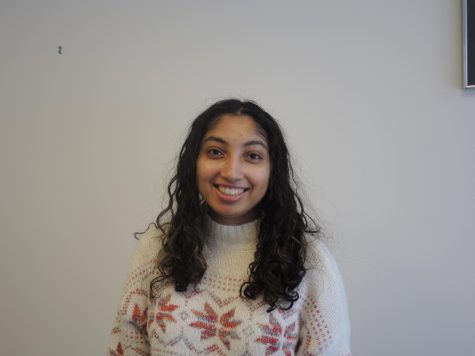Admin follow up on student protest in community conversation
December 9, 2021
On Dec. 2, President Suzanne Rivera and members of the senior staff held a community conversation in Zoom webinar format. This conversation, open to all students, faculty and staff, intended to continue the discussion from the Nov. 3 sit-in.
Rivera, after citing heightened COVID-19 risk as the reason for moving the event to Zoom, opened the discussion by acknowledging that the coffee break on Nov. 3 did not go as senior staff had planned. She described steps that the college has taken since that day, which included the implementation of a wellness day on Nov. 12, a new support page on the Macalester website and a community-wide strategic planning session on Nov. 19.
Rivera said that one of the most prominent steps taken following the sit-in was the appearance of Macalester College Student Government (MCSG) President Shreya Nagdev `22 during a faculty meeting on Nov. 9. During this meeting, which was not mandatory for faculty members to attend, Nagdev talked about issues that students are facing and the kind of support that they need from faculty.
“In a lot of ways, the faculty were more confused about what even happened during the sit-in, and so they didn’t know what needed to happen,” Nagdev wrote in an email to The Mac Weekly. “I hope that what I told them will help them frame their classes and how they treat students in the subsequent semesters.”
Nagdev emphasized that the issues brought up both at the sit-in and faculty meeting were more a product of Macalester’s culture than the fault of individual faculty members. She reported that, as a result of this meeting, the Faculty Advisory Council plans to meet with MCSG’s Academic Affairs Committee once a month and will also attend one MCSG meeting per semester.
The rest of the community conversation was dedicated to answering questions from Macalester students, faculty and staff. Questions were both presubmitted and asked in real time. Some of the most discussed topics were wellness days, strategic planning, communication between administration and students and general support for students.
In response to a question asking whether the college plans to implement wellness days in the spring, Provost Lisa Anderson-Levy said that there are no current plans to do so due to the fact that wellness days are not a proper solution to student burnout. She explained that more systemic and long-term changes to campus culture are necessary in order to remedy the stress that students are feeling.
The inclusivity of the college’s strategic planning process was also brought into question. Senior staff assured members of the audience that strategic planning opportunities will be open to all members of the Macalester community, including alumni and parents. Along with the appointed Strategic Planning Champions, any member of the Macalester community is encouraged to share their ideas through a survey. In addition, senior staff noted that drafted goals and objectives will be shared with the entire community.
There was also a question regarding how often sessions like this would occur. Anderson-Levy talked about potentially holding office hours next semester as an additional opportunity for students to communicate with senior staff. Rivera stated that she is open to suggestions for how to continue these conversations; an announcement in the Mac Daily stated that another community conversation will be held on Feb. 3, with the location and format to be determined. Associate Dean of Campus Life Andrew Wells also encouraged students to apply to join advisory committees as another opportunity for regular conversation about issues facing Macalester students.
Another key theme of the discussion were possible avenues for student support. An audience member asked a question about whether there are any plans to hire more staff for the Department of Multicultural Life (DML) and International Student Programs (ISP) in order to better support international and BIPOC students. Rivera stated that the school is in the process of filling a vacancy in the DML and Anderson-Levy said that she has been in touch with ISP about staffing needs.
In response to a question about specific changes to help stress levels, Anderson-Levy emphasized that stress is a community challenge and that students are not the only ones feeling it.
One of the final questions asked during the discussion regarded the extension of power sharing to students, both in the context of wanting wellness days and wanting their voices to be heard. Rivera explained that students are more than encouraged to take days off for themselves if they feel the need to do so, and that staff are welcome to do the same using their sick days.
Wells also spoke to the fact that students can participate in shared governance, such as MCSG, as a way to make their voices heard. Dean of Multicultural Life Marjorie Trueblood emphasized that tackling the issues facing members of the Macalester community will require the work of a lot of people. She concluded the conversation by speaking to the amount of “untapped power” held by members of the Macalester community.
Trueblood noted that the administration shares the same goals as the students, and that the entire community must work together in order to create change.
“We share the same ‘why,’ our ‘how’ might be different,” Trueblood said.














